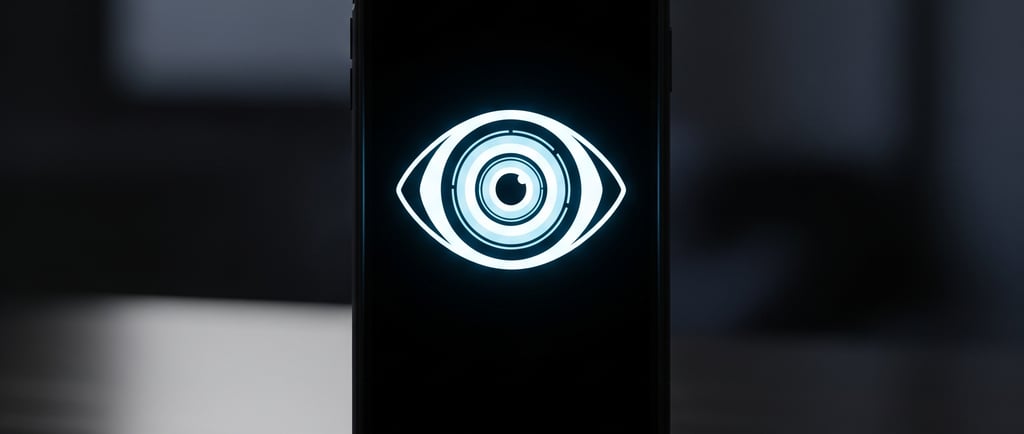Big Brother Isn't Watching You. Your Smartphone Is.
In today’s digital age, privacy fears often evoke images of government agencies spying on citizens. But the reality is far more personal—and in many ways, far more intrusive. It’s not Big Brother watching you from a distant control room; it’s your smart phone, a device you carry everywhere, quietly collecting data about your every move, habit, and preference. Welcome to 2025, where your smartphone is the ultimate surveillance tool.
NON-STOIC PHILOSOPHIES
8/1/20252 min read


How Your Smartphone Tracks You
Smartphones are packed with sensors and technologies designed to gather information constantly. They track your:
Location: GPS signals pinpoint where you go, from your daily commute to your favorite café.
Communications: Calls, texts, emails, and even your voice commands can be logged and analyzed.
Browsing habits: Every website visited, every app used, and the amount of time spent on each leaves digital footprints.
Physical activity: Accelerometers, gyroscopes, and health apps monitor your movements, heart rate, and sleep patterns.
Social interactions: Your social media activity, contacts, and shared photos create a detailed profile of your social life.
This continuous data collection builds an incredibly detailed map of who you are, what you like, and how you live.
Why This Data Matters
The information your smartphone gathers is valuable—and not just to marketing companies hoping to sell products. It can be used for:
Targeted advertising: Personalized ads follow you everywhere online, shaping what you see and buy.
Behavioral analysis: Algorithms predict your habits and preferences to influence your decisions and behavior.
Location-based services: From restaurant recommendations to emergency alerts, your location data opens doors to convenience but also surveillance.
Security monitoring: Apps and operating systems track device usage to detect fraud or theft, but this can blur lines with privacy.
In the hands of companies, this data powers powerful profiles that influence everything from your shopping to your political beliefs.
The Illusion of Privacy Control
Many believe that simple actions like turning off location services or deleting browsing history can protect their privacy. While these steps help, they often fall short:
Apps may continue tracking through other sensors or network connections.
Data collected is frequently shared or sold to third parties.
Consent is buried in long, complex privacy policies few read.
Updates and new features introduce fresh ways of gathering data.
True smartphone privacy requires constant vigilance and knowledge about your device’s permissions and settings.
How Smartphones Evolved into Surveillance Machines
Originally designed for communication, smartphones have evolved into powerful computers embedded with AI, machine learning, and cloud connectivity. This evolution:
Enables real-time data processing directly on devices.
Supports biometric authentication like facial recognition and fingerprint sensors, adding new layers of personal data.
Integrates various apps that track health, finance, travel, and more.
Provides tools for governments and law enforcement under legal frameworks to access data.
The more we depend on these devices, the more data we inadvertently share—and the more we surrender privacy.
Taking Back Your Digital Privacy
While smartphones are powerful tools, you can take steps to reduce surveillance risks:
Regularly review app permissions and revoke those not needed.
Use privacy-focused apps and browsers that limit tracking.
Enable strong authentication methods like biometrics and two-factor authentication.
Keep your software updated to patch vulnerabilities.
Be cautious about sharing location or sensitive data freely.
Awareness and proactive management are critical defenses in a world where your phone is always “watching.”
Final Thoughts
Big Brother may still be a symbol of state control in fiction, but in reality, the surveillance that impacts your daily life is far more intimate and sophisticated. Your smartphone is not just a device—it’s a continuous listener, observer, and reporter. Understanding this is the first step in reclaiming control over your digital footprint in 2025 and beyond.
Waste no more time arguing about what a good man should be. Be one - Marcus Aurelius
We suffer more often in imagination than in reality - Seneca
Wealth consists not in having great possessions, but in having few wants - Epictetus
